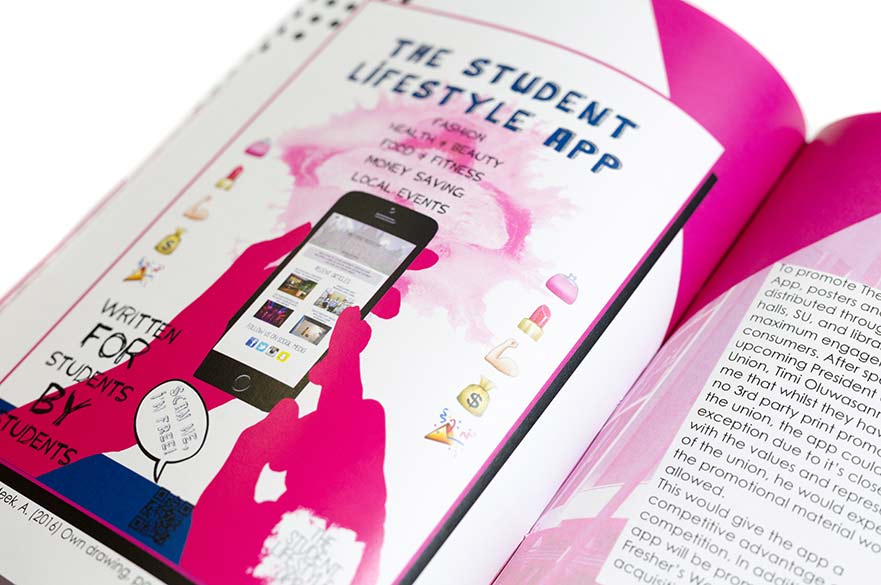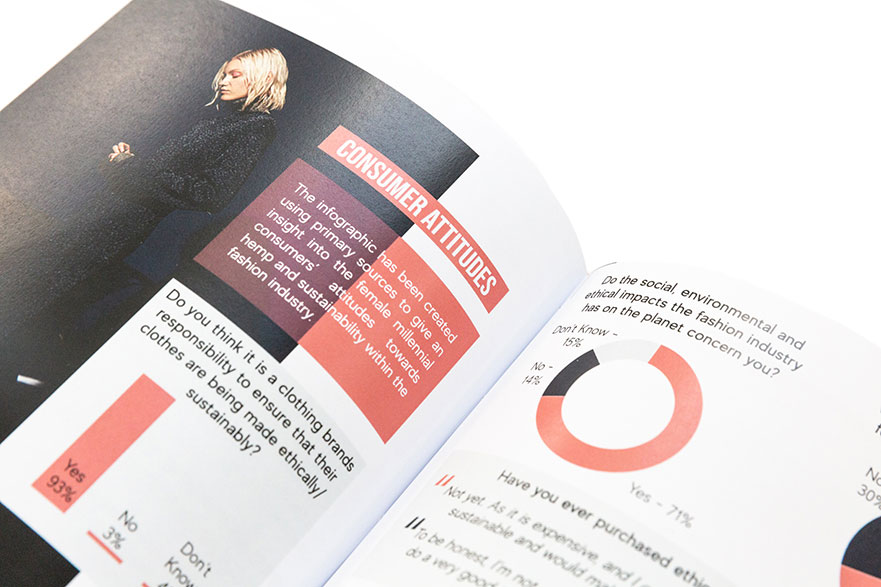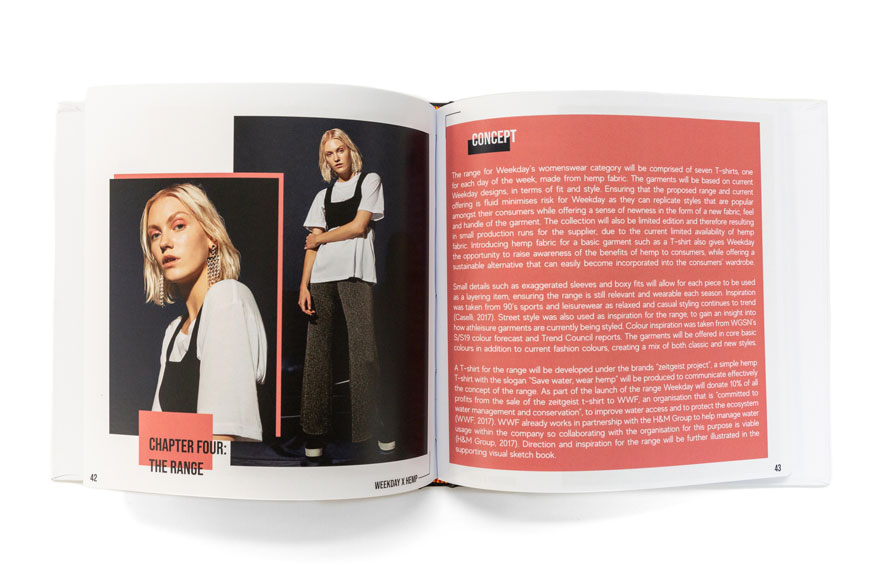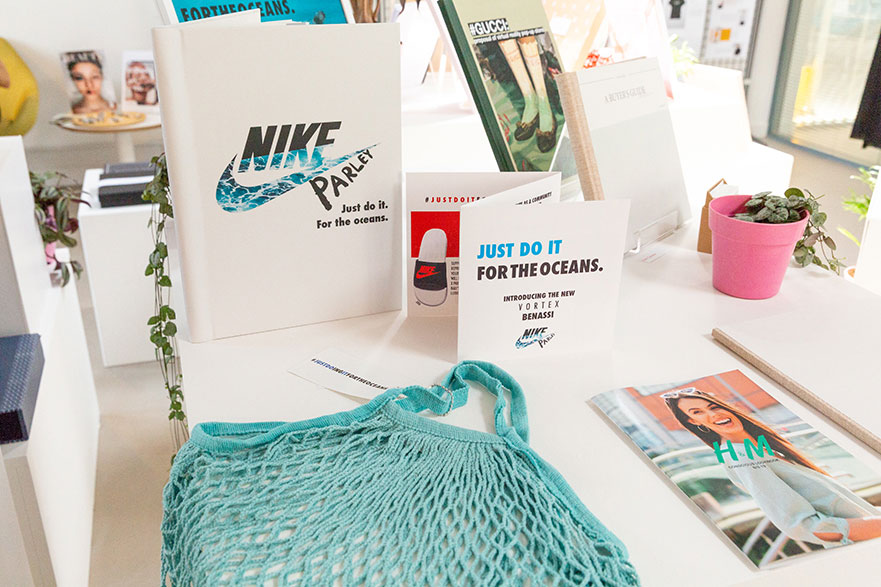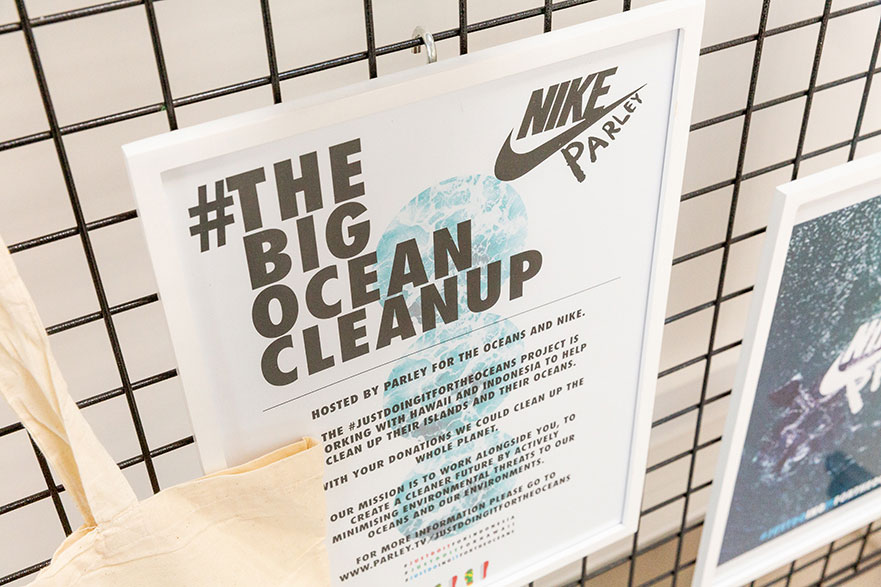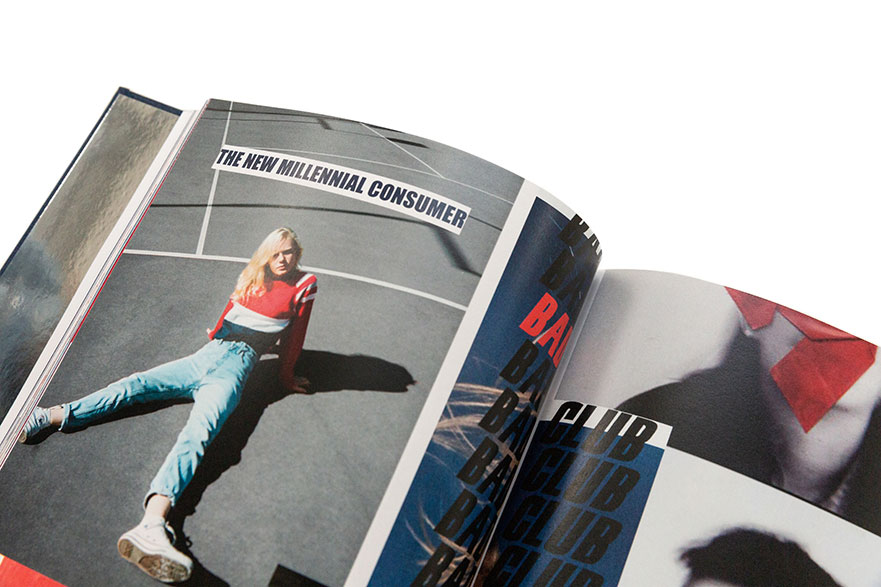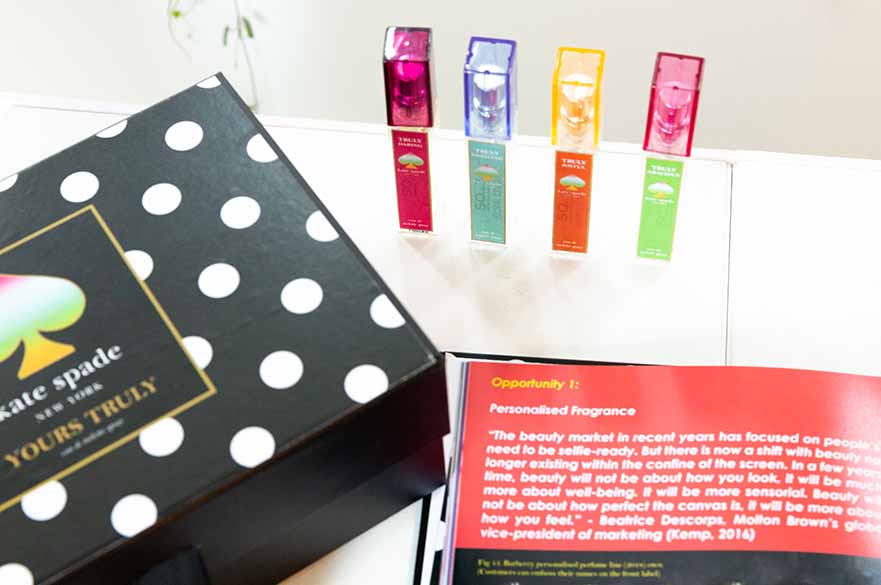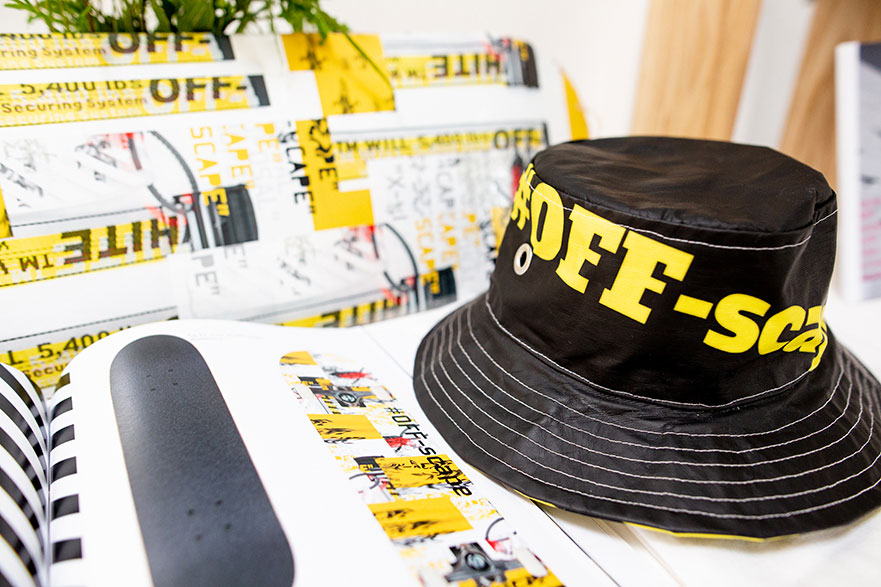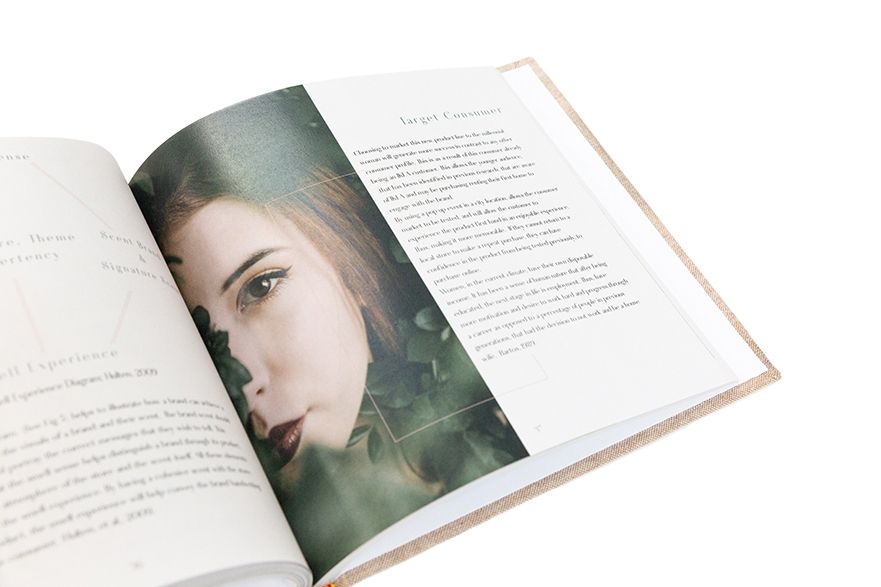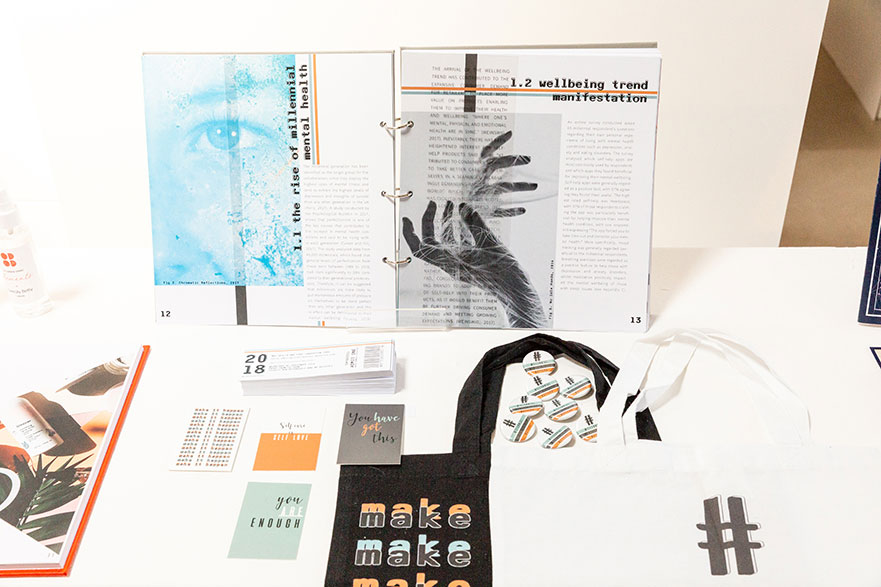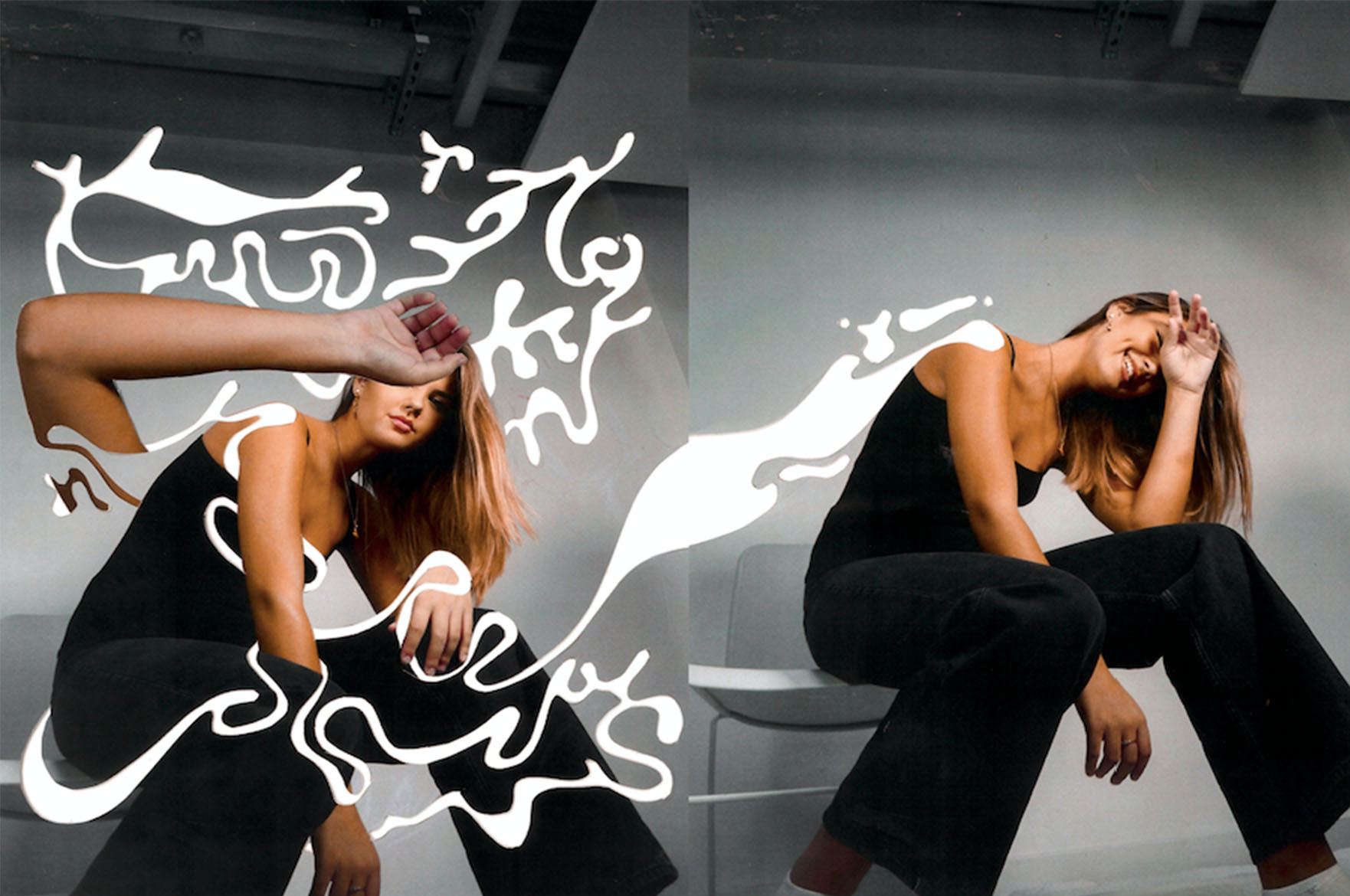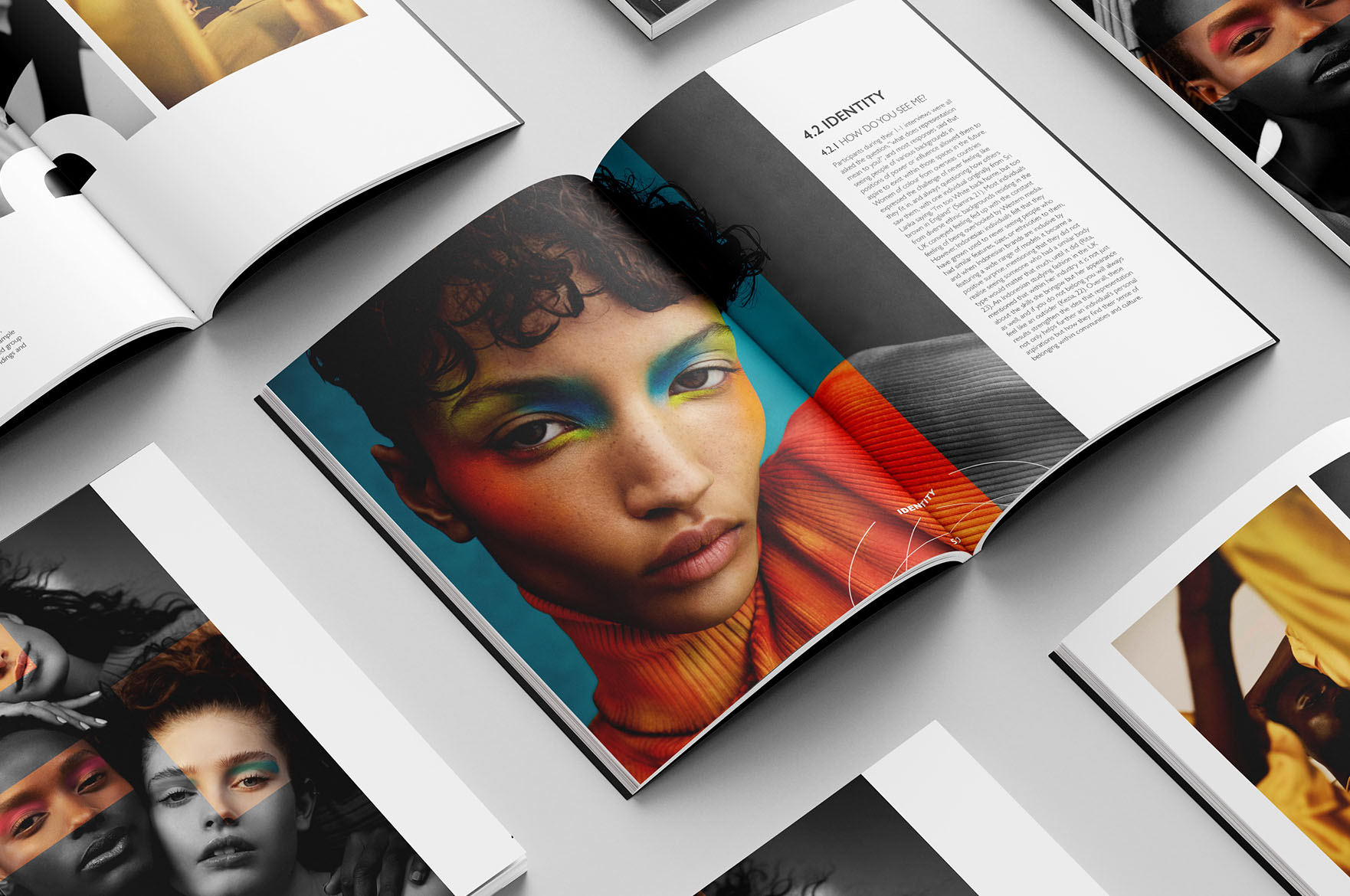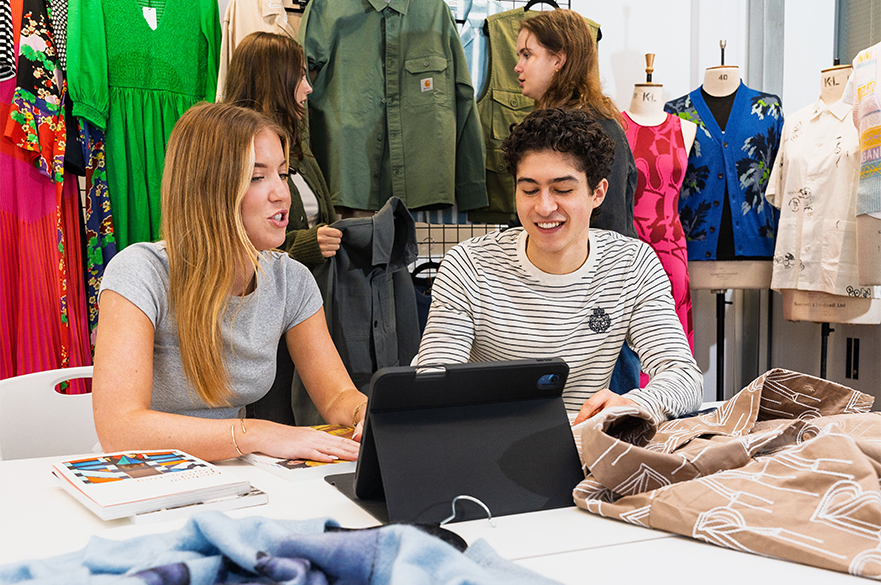Beat the Clearing queue
About this course
BA (Hons) International Fashion Business is for aspiring fashion professionals. Designed as a one-year top-up, this course will build upon your prior knowledge and experience (whether it be from a design or business background), equipping you with the skills and insights needed to thrive in the ever-evolving global fashion industry.
With a strong emphasis on sustainability and innovation, you’ll take a global outlook, challenge conventions and help shape the future of fashion. You'll benefit from a highly personalised learning experience, collaborating with likeminded fashion lovers from all over the world while being supported by a team of experienced industry experts. Plus, you'll gain hands-on practical experience and expand your professional network through live projects and competitions.
This dynamic international fashion business course will help you stand out in a far-reaching, global industry, lending itself to roles in buying, merchandising, brand management and digital marketing. Get ready to embark on your journey to success in the vibrant world of fashion.
-
Tailor your degree to align with your career aspirations by specialising your independent projects.
-
Build a global network as you learn alongside students from across the world.
-
Learn from expert teachers with extensive industry experience and professional contacts.
-
Become a fashion pioneer as you push boundaries and champion sustainability and innovation.
15
What you’ll study
Throughout the course, you'll explore the most critical areas of the global fashion industry. You'll learn about sustainability and how eco-friendly innovation can futureproof fashion; ethical business practices and the importance of doing business the right way; and how to stay ahead of the curve by identifying and analysing the latest trends. You’ll also delve into product management and marketing, learning how brands design, develop and promote their ranges to connect with customers. All your learning will be put into practice with hands-on opportunities like entering competitions and working on live projects for a diverse range of fashion brands.
Global Fashion Responsibility (20 Credit Points)
Gain the tools and insights needed to transform the fashion industry, empowering you to champion ethical practices and innovate for a more sustainable and equitable future.
Critically examine the concept of global fashion responsibility, addressing the urgent need to rethink traditional fashion business models in response to environmental and social challenges. Explore
topics such as supply chain management, responsible sourcing and sustainable production practices, and gain a comprehensive understanding of how and why they contribute to a more transparent, traceable and accountable industry. Integrating these principles and your research into real-world scenarios, you’ll investigate self-regulating business strategies that promote sustainable growth, including the principles of circular product economies and strategies for minimising waste and environmental impact.
The Future of Fashion (60 Credit Points)
Explore what the fashion industry could look like in years to come, and steer your own personal project addressing its most pressing challenges.
Examine the future of the fashion industry by analysing global macro and micro trends, consumer behaviours, and the impacts of economic, technological and environmental changes. In the second half of the year, use your understanding of these to choose a specialism for your personalised project, for which you'll merge strategic thinking with creativity to craft innovative solutions to real-world industry challenges. This is a chance to reflect on and refine your professional growth and aspirations, paving the way for your career in fashion.
Fashion Product Management & Marketing (40 Credit Points)
Delve into the process of developing and creating product ranges, exploring how brands design and bring products to market.
Develop a comprehensive understanding of how the fashion industry operates, from identifying target consumers and analysing markets to navigating the retail landscape. Through practical insights and case studies, you’ll build an understanding of the entire lifecycle of fashion products, and discover how brands engage with their audiences to foster strong consumer connections.
We regularly review and update our course content based on student and employer feedback, ensuring that all of our courses remain current and relevant. This may result in changes to module content or module availability in future years.
Don’t just take our word for it, hear from our students themselves
Student Work
Video Gallery
How you're taught
Teaching and learning experiences will include:
- lectures
- seminars
- tutorials
- workshops
- personal development plan
- visits to industry head offices and retail stores
- creative IT skills workshops
- fashion trade exhibitions.
Optional trips and study visits
There may also be an opportunity to take part in optional field trip to a European destination that will be tailored to suit your course.
Showcase
You will be given the opportunity to exhibit your work during your time at NTU to members of the creative industries. Visit our ‘We Are Creatives’ showcase to take a look at the work of this year's graduating students’.
How you're assessed
Depending on the module, you may be assessed through:
- Reports
- Presentations
- Written assignments
- Visually led projects
- Creative outputs
- Portfolio
- Essays
The majority of assessments are for you to complete on your own. There are two group projects where you will receive ongoing feedback to help you identify ways of improvement. Assessment tasks are designed to challenge you over the year to increasingly demonstrate your own creativity, reflect your own interests, and include independent research.
Careers and employability
Graduate roles include buying, merchandising, digital marketing, design, visual merchandising and account management. You may also wish to pursue further education or self-employment.
Recent graduate roles and destinations include:
- Next, trainee buyer
- Adidas, visual merchandiser, Amsterdam
- Calvin Klein, brand coordinator, Hong Kong
- Eland Fashion, assistant buyer, Hong Kong
- YM INC, ecommerce coordinator, Canada.
YouFirst – working with our Employability team
Studying a creative degree in a large university has many benefits, none more so than having access to a large employability team.
Our friendly, experienced careers consultants will work closely with you at every stage of your career planning, providing personal support and advice you won't find in a book or on the internet. You can benefit from this at any time during your studies, and for up to three years after completing your course.
Connecting with industry
This course has developed strong collaborations with industry partners at local, national and international levels. Recent visitors have included:
- Carol Rose, an expert in sustainable fashion life cycle solutions
- Matthew Dixon, director of Hudson Walker International
- Food Futurologist Dr Morgaine Gaye
- Andrew and Iain Foxall from Foxall Studio
- Marketing Consultancy BDA London
- representatives from Wedgewood, Next, and Whistles
- visiting alumni who come to share their industry experience.
You’ll have the opportunity to work on live projects and competitions with brands and organisations within the fashion and related industries. This has recently included a fashion buying and range planning competition with Next, leading to a graduate intern position.
Creative Industries Federation
We are members of the Creative Industries Federation (CIF), which means students in the Nottingham School of Art & Design have the opportunity to sign up to free student membership. Creative Industries Federation are an organisation that represents, champions and supports the UK’s creative industries and membership grants students exclusive access to their selection of resources and events to help advance your career and connect with industry.
What our students are doing now
The NTU alum with a passion for sustainable fashion
Meet the NTU International Fashion and Business alum on a mission to change the way we consume fashion and reduce its impact on the environment.
Fashion students attend design brief workshop with iconic Nottingham designer
NTU alumnae becomes first UK winner of Cannes Young PR Lions competition
Campus and facilities
You will be based in the Barnes Wallis building at the heart of the City Campus, with its modern teaching rooms, collaborative working spaces and Mac suite. View our Nottingham School of Art & Design Facilities Hub here.
These facilities are dedicated to students studying:
- BA (Hons) Fashion Communication and Promotion
- BA (Hons) Fashion Management
- BA (Hons) Fashion Marketing and Branding
- BA (Hons) International Fashion Business (1 year top up).
Our Masters students are also based in Barnes Wallis, providing opportunities for mentoring our undergraduate students.
Entry requirements
UK students
- completion of Year Two of a Fashion or Textiles-related degree course; or
- completion of a HND course in Fashion or Textiles; or
- completion of a Foundation degree in a related Fashion or Textiles discipline.
- a personal statement along with a sample of creative and written academic work.
To find out what qualifications have tariff points, please use our tariff calculator.
Additional requirements for UK students
Contextual offers
If you don’t quite meet our entry requirements, we might be able to make you a lower offer based on a range of factors, including your background (such as where you live and the school or college you attended), your experiences and your individual circumstances (you may have been in care, for example). This is called a contextual offer, and we get data from UCAS to help make these decisions. We do this because we believe everyone with the potential to succeed at NTU should have the opportunity to do so, no matter what barriers you may face.
Other qualifications and experience
NTU welcomes applications from students with non-standard qualifications and learning backgrounds, either for year one entry or for advanced standing beyond the start of a course into year 2 or beyond.
We consider study and/or credit achieved from a similar course at another institution (otherwise known as credit transfer), vocational and professional qualifications, and broader work or life experience.
Our Recognition of Prior Learning and Credit Transfer Policy outlines the process and options available for this route. If you wish to apply via Recognition of Prior Learning, please contact the central Admissions and Enquiries Team who will be able to support you through the process.
Getting in touch
If you need more help or information, get in touch through our enquiry form.
International students
We accept equivalent qualifications from all over the world. Please check your international entry requirements by country.
English language requirements: See our English language requirements page for requirements for your subject and information on alternative tests and Pre-sessional English.
Additional requirements for international students
English language requirements
View our English language requirements for all courses, including alternative English language tests and country qualifications accepted by the University.
If you need help achieving the language requirements, we offer a Pre-Sessional English for Academic Purposes course on our City campus which is an intensive preparation course for academic study at NTU.
Other qualifications and experience
If you have the right level of qualifications, you may be able to start your Bachelors degree at NTU in year 2 or year 3. This is called ‘advanced standing’ entry and is decided on a case-by case basis after our assessment of your qualifications and experience.
You can view our Recognition of Prior Learning and Credit Transfer Policy which outlines the process and options available, such as recognising experiential learning and credit transfer.
Sign up for emails
Sign up to receive regular emails from the International Office. You'll hear about our news, scholarships and any upcoming events in your country with our expert regional teams.
Getting in touch
If you need advice about studying at NTU as an international student or how to apply, our international webpages are a great place to start. If you have any questions about your study options, your international qualifications, experience, grades or other results, please get in touch through our enquiry form. Our international teams are highly experienced in answering queries from students all over the world.
Policies
We strive to make our admissions procedures as fair and clear as possible. To find out more about how we make offers, visit our admissions policies page.
